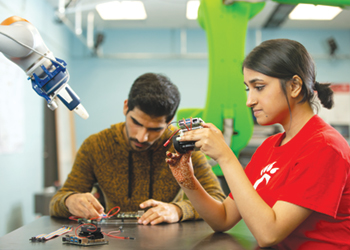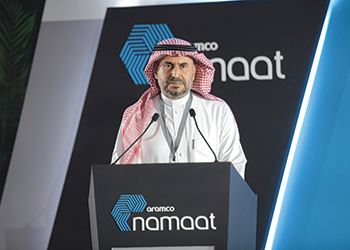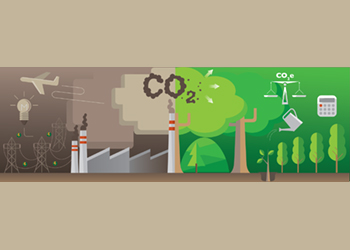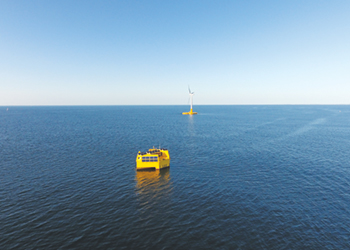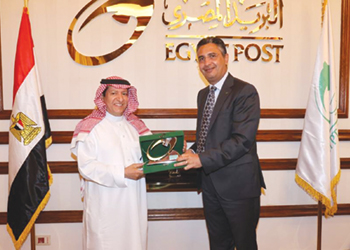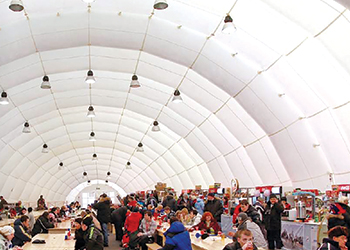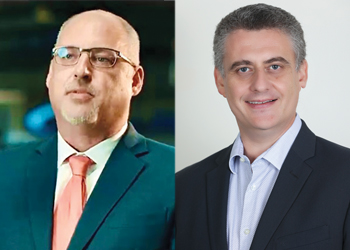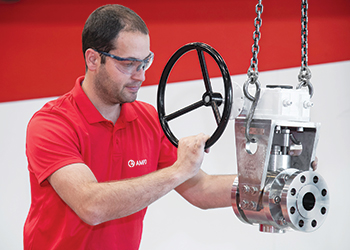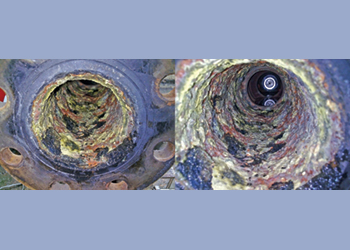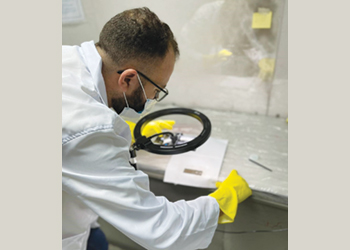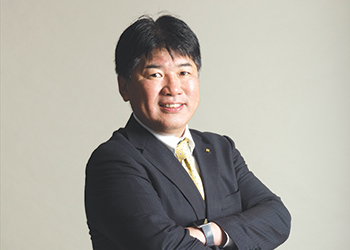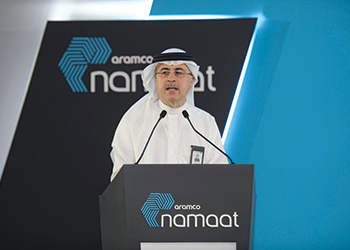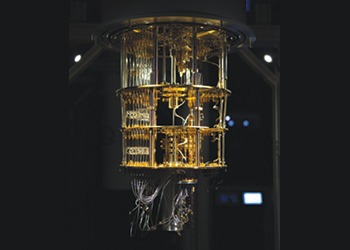
 Cook ... debunking science deniers
Cook ... debunking science deniers
Be it climate change, pandemic or other scientific topics, disinformation campaigns often use the same methods. John Cook explains the five most common ploys used by science deniers
In 2007, Mark Hoofnagle from the University of Virginia suggested on his science blog ‘Denialism’ that denialists across a range of topics such as climate change, evolution, and HIV/AIDS all employed the same rhetorical tactics to sow confusion.
The five general tactics were conspiracy, selectivity (cherry-picking), fake experts, impossible expectations (also known as moving goalposts), and general fallacies of logic.
Two years later, Pascal Diethelm and Martin McKee published an article in the scientific journal European Journal of Public Health titled ‘Denialism: What Is It And How Should Scientists Respond?’
They further fleshed out Hoofnagle’s five denialist tactics and argued that the tactics of denial should be exposed to public scrutiny, identifying them for what they are.
 |
The FLICC poster |
Australian John Cook, a professor at the Center for Climate Change Communication (4C) at George Mason University, took this advice to heart and began including the five denialist tactics in his own talks about climate misinformation.
In 2013, the Australian Youth Climate Coalition invited Cook to give a workshop about climate misinformation at their annual summit.
As he prepared his presentation, Cook mused on whether the five denial techniques could be adapted into a sticky, easy-to-remember acronym.
"I vividly remember my first attempt: beginning with Fake experts, Unrealistic expectations, Cherry picking… realising I was going in a problematic direction for a workshop for young participants. I started over and settled on FLICC: Fake experts, Logical fallacies, Impossible expectations, Cherry picking, and Conspiracy theories."
When Cook led a 2015 collaboration between the University of Queensland (Australia) and Skeptical Science, a climate science blog he found, to develop the free online course ‘Denial101x: Making Sense of Climate Science Denial’, they made FLICC the underlying framework of the entire course.
 |
Figure 1 ... the latest version of the FLICC taxonomy |
An important component of their debunking of the most common myths about climate change was identifying the denial techniques in each myth.
A common comment they received from students was how much they appreciated learning about FLICC.
The FLICC framework has been subsequently expanded over the years into a more detailed taxonomy of rhetorical techniques, logical fallacies, and conspiratorial traits (Figure 1).
In his collaboration with critical thinking philosophers Peter Ellerton and David Kinkead, Cook was introduced to reasoning fallacies that he hadn’t included in the Denial101x course.
As he began developing the ‘Cranky Uncle’ game, Cook began a series of fallacy quizzes where he gradually built the taxonomy up as he introduced people to an ever-growing collection of denial techniques.
BUILDING RESILIENCE AGAINST MISINFORMATION THROUGH GAMING
Misinformation about climate change does damage in multiple ways. It causes people to believe wrong things, polarises the public, and reduces trust in scientists.
Climate misinformation reduces support for climate action, delaying policies to mitigate climate change.
One of the most insidious aspects of misinformation is it can cancel out accurate information.
When people are presented with fact and myth but don’t know how to resolve the conflict between the two, the risk is they disengage and believe neither.
Consequently, an effective way to counter misinformation is to help people resolve the conflict between facts and myths.
 |
Figure 2 ... Sample of trail screens from the Crank Uncle game |
This is achieved by inoculating the public against the misleading rhetorical techniques used in misinformation.
Inoculation theory is a branch of psychological research that applies the concept of vaccination to knowledge.
Just as exposing people to a weakened form of a virus develops resistance to the real virus, similarly, exposing people to a weakened form of misinformation builds immunity to real-world misinformation.
Inoculation has been found to be effective in neutralising misinformation casting doubt on the scientific consensus on human-caused global warming. Inoculation messages are also long lasting.
There are two main inoculation approaches – fact-based and logic-based.
Fact-based inoculations expose how the misinformation is wrong by explaining the facts. Logic-based inoculations explain the rhetorical techniques or logical fallacies used by the myth to distort the facts.
While both methods are effective in neutralising misinformation, the logic-based approach is particularly attractive because it works across topics.
In one experiment, when participants were inoculated against a rhetorical technique used by the tobacco industry, they were no longer misled by the same technique used in climate misinformation. Logic-based inoculation is like a universal vaccine against misinformation.
Identifying the techniques of denial requires a framework that organises and describes the misleading fallacies found in misinformation. A useful framework is the FLICC framework.
Parallel argumentation is a powerful technique for explaining the misleading techniques of misinformation. This involves transplanting the flawed logic from a fallacious argument into an analogous situation, often an extreme or absurd one.
By focusing on reasoning errors, parallel argumentation debunks misinformation while sidestepping the need to provide complicated explanations.
It is also a technique conducive to entertaining and humourous applications.
Generally, humour in science communication offers a number of benefits. Humourous messages are more engaging, showing the greatest impact with people who are disengaged from issues like climate change.
And using humour to explain a serious topic such as climate change with humour makes the issue less threatening and more accessible. Additionally, people respond to humourous messages with less counter arguing.
Cartoon parallel arguments have been shown to be effective in debunking misinformation about vaccines and climate change.
Using mediation analysis with eye-tracking data, humourous cartoons were found to be successful in discrediting misinformation because people spent more time paying attention to the cartoons.
One limitation of logic-based inoculation is that it depends on building resilience by increasing critical thinking, a cognitively effortful activity.
The vast majority of our thinking is effortless, fast thinking (for example, mental shortcuts or heuristics) rather than effortful, slow thinking (for example, critically assessing the logical validity of misinformation), an aspect of psychology explored in the book Fast and Slow Thinking by Daniel Kahnemann.
This reliance on heuristics makes people vulnerable to logical fallacies which can be superficially persuasive.
However, Kahnemann also discusses a third type of thinking—expert heuristics. When a person practices a task a sufficient number of times, the slow thinking processes required to complete the difficult task evolve into fast thinking responses.
Games offer engaging tools for incentivising people to repeatedly perform misinformation-spotting tasks in order to build up their critical thinking skills.
The Cranky Uncle game adopts an active inoculation approach, where a Cranky Uncle cartoon character mentors players to learn the techniques of science denial.
It is a free game available on iPhone and Android smartphones as well as web browsers.
The player’s aim is to become a "cranky uncle"—a science denier who skillfully applies a variety of logically flawed argumentation techniques to reject the conclusions of the scientific community.
By adopting the mindset of a cranky uncle, the player develops a deeper understanding of science denial techniques, thus acquiring the knowledge to resist misleading persuasion attempts in the future.
Explanations of denial techniques form the spine of the game (Figure 2).
Each denial technique is explained in a "trail", a sequence of screens featuring text explanations and cartoon examples of logical fallacies.
Gameplay elements such as point accumulation and leveling up provide regular feedback, incentivising the player to continue deeper into the game and develop greater resilience against misinformation.
After completing trails, players practice their newly acquired critical thinking knowledge by completing quiz questions.
The game features three types of questions. The first type are true/false questions—either false statements containing a logical fallacy or inherently true statements (for example, tautologies such as "people are dying who never died before").
The second question type asks the player to identify a specific fallacy from several false statements.
The third question type presents a false statement (in text or cartoon form) with the player identifying the denial technique from four options.
Currently, educators are using the game in classes from middle school to grad school at university level, across subjects as diverse as biology, environmental science, English, and philosophy.
In recent years, misinformation has been an ever-present problem, affecting all aspects of society. Amplified by social media platforms and exacerbated by global developments such as the Covid-19 pandemic, the problem is complex, ubiquitous, and interconnected.
Holistic solutions are required that can be scaled up to address the immensity of the challenge—interdisciplinary projects combining science, technology, and the arts.
Art enables communicators to package scientific information in entertaining formats that engage the attention of disengaged audiences.
Technology enables the dissemination of interactive games at a scale commensurate with the problem. Science provides evidence-based approaches for addressing misinformation such as research into logic-based inoculation and cartoon parallel arguments.
The Cranky Uncle game brings together these diverse threads, synthesising research into inoculation, critical thinking, and science humour, wrapped in a technological package that makes critical thinking content accessible to players in an engaging, interactive format.
John Cook has been dealing with disinformation on climate change for more than a decade. In 2007, he founded SkepticalScience.com, which debunks popular denial myths. In 2013, Cook was lead author of the ‘97 Percent Study’, which examined the expert consensus on man-made climate change.
In 2016 Cook received his doctorate in cognitive psychology. He currently researches as an assistant professor at the Center for Climate Change Communication (4C) at George Mason University. He is also the creator of the comic character ‘Cranky Uncle’, a grumpy science denier, and is currently developing a smartphone game of the same name.








































































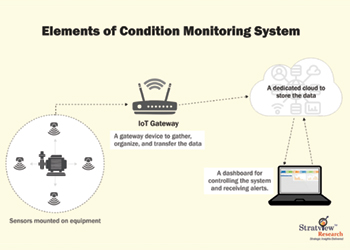



.jpg)

